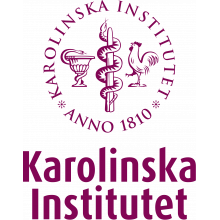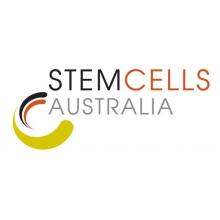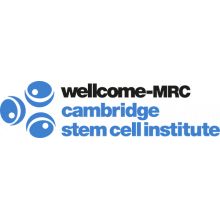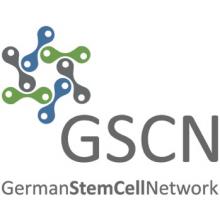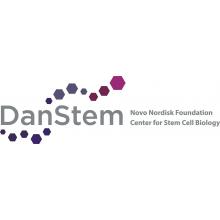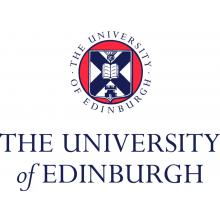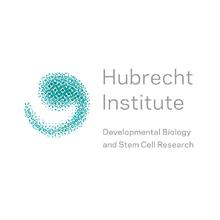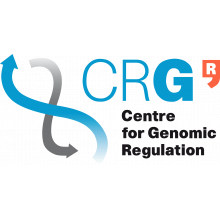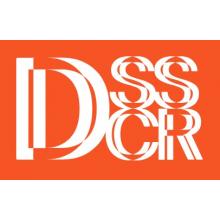A propos d'EuroStemCell

EuroStemCell a pour but d’aider les citoyens européens à comprendre les cellules souches. Nous fournissons des informations validées par des experts indépendants et des outils pédagogiques ayant fait leurs preuves concernant les cellules souches et leur impact sur la société. Nous sommes financés par le programme de recherche et d’innovation de l’Union européenne «Horizon 2020» (Convention de subvention numéro 652796) . Vous pouvez en savoir plus ici sur l'historique d'EuroStemCell (en anglais).
Nous sommes un partenariat réunissant plus de 400 laboratoires de cellules souches et médecine régénérative reliés par des centres de recherche, consortiums, réseaux et plateformes. Des scientifiques, cliniciens, éthiciens, sociologues et vulgarisateurs scientifiques contribuent au projet.
Nous travaillons en étroite collaboration avec des patients, éducateurs, autorités de régulation et décideurs politiques afin de renforcer l'intérêt et mettre au point un matériel répondant à leurs besoins.
Notre équipe, basée à Édimbourg, rassemble différentes compétences en communication scientifique – de la promotion et la formation scolaire au développement des ressources et à la rédaction scientifique en passant par la production de films et la gestion d’événements.
EuroStemCell a des partenariats clés avec des consortiums de recherche sur les cellules souches financés par l’Union Européenne, qui fournissent une contribution financière et scientifique importante au projet.
Les institutions qui nous soutiennent
Le travail à but non lucratif d'EuroStemCell est rendu possible grâce au soutien de ces institutions partenaires
Notre équipe

Clare Blackburn
Clare Blackburn

Professor Clare Blackburn is a Group Leader at the University of Edinburgh's Centre for Regenerative Medicine. EuroStemCell's Project Co-ordinator and Director of Training and Outreach for the original EuroStemCell, she has been instrumental in getting this website funded, up and running. She's also a Principal Investigator in Framework Seven project EuroSyStem.
Clare’s research focuses on development of the thymus. The thymus plays a central role in the development of the body’s immune system as it is the main site in which T cells are generated. T cells are a type of white blood cell that play an important role in immunity. Clare's lab recently identified a population of progenitor/stem cells in mice that, on transplantation, is sufficient to generate a fully functional thymus.

Amanda Waite
Amanda Waite

Amanda Waite is EuroStemCell’s Information, Network and Translation Manager and is based at the University of Edinburgh’s Centre for Regenerative Medicine. She coordinates EuroStemCell's network and manages the provision of expert-reviewed, reliable and accessible information about stem cells, including the translation of EuroStemCell’s website and resources.
Amanda joined the University in 2012 and worked in operations management, website development and system replacement projects before joining the EuroStemCell team. She has a Master of Professional Studies in Translation from the University of Auckland and has previously worked as a localisation project manager.

Anna Couturier
Anna Couturier

Anna Couturier, Phd. is the Head - Research, Development, and Strategy for EuroStemCell and EuroGCT at the University of Edinburgh's Centre for Regenerative Medicine. She leads project implementation including horizon-scanning research, fundraising and strategic development, digital strategy and coordination for the projects in collaboration with their partners and public stakeholders. She also provides in-depth training for scientists and science communicators with a special focus on science and technology in digital spaces.
Anna's academic research in Science and Technology Studies at the University of Edinburgh covers generative AI, algorithmic governance, digital health, and regenerative medicine with a particular interest in developing digitally native methodologies to address health information questions online.
Her previous work covers global educational media development and digital advocacy at institutions including Da Vinci Kids, Columbia University Center for the Core Curriculum, GLAAD, and the Women's Media Center.
Nos partenaires

Henrik Semb
Henrik Semb

HumEn stem cell research consortium
Henrik Semb is Managing Director of Danstem and Professor of Human Stem Cell Biology. He uses an integrated and multi-disciplinary approach to his research which focuses on pancreas development and disease using a combination of developmental biology and stem cell research. He is the project co-ordinator of the EU funded HumEn project, which aims to up-scale the generation of insulin producing beta cells for the treatment of diabetes.

Urban Lendahl
Urban Lendahl


Giuseppe Testa
Giuseppe Testa


Sarah Chan
Sarah Chan

Usher Institute for Population Health Sciences and Informatics
Sarah Chan is a recently-appointed Chancellor’s Fellow at the Usher Institute for Population Health Sciences and Informatics, University of Edinburgh. She was educated at the University of Melbourne, Australia, where she completed degrees in biological science and in law, and spent a number of years as a researcher in a molecular biology laboratory before moving to work in the area of science policy and stem cell ethics. In 2005 Sarah took up a Research Fellowship in Bioethics and Law at the Centre for Social Ethics and Policy, University of Manchester, where she also completed a MA in Health Care Ethics and Law and a PhD in Bioethics. From 2009 to 2015 she was Deputy Director of the Institute for Science, Ethics and Innovation, University of Manchester. Her research interests and publications cover areas including the ethics of gene therapy and genetic information, enhancement, research ethics, stem cells, animal ethics, transhumanism, and the ethics of science and innovation.

Kim Jensen
Kim Jensen


Christine Mummery
Christine Mummery

Leiden University Medical Centre
Christine Mummery is Professor and chair of Developmental Biology at Leiden University Medical Centre. She pioneered studies on cardiomyocytes from human embryonic stem cells and was among the first to inject them in mouse heart after myocardial infarction Present interests are on using stem cell derived cardiomyocytes and vascular cells as disease models, for drug discovery. In 2007, she was a joint Harvard Stem Cell Institute/Radcliffe fellow.
She presently serves on several Ethical Councils, Scientific Advisory and Editorial Boards and has written a popular book on stem cells. She is also on the board of ISSCR, president of the International Society of Differentiation and an elected member of the Royal Netherlands Academy of Science.
Read our interview with Christine Mummery: A physicist's take on stem cell biology.

Austin Smith
Austin Smith

Wellcome - MRC Cambridge Stem Cell Institute
Professor Austin Smith FRS has expertise in the field of pluripotency and has pioneered key advances in the field of embryonic stem cell research. In 2010 he was awarded the prestigious Louis-Jeantet Prize for Medicine and in 2016 received the International Society for Stem Cell Research Award for Innovation. Austin was the Project Co-ordinator for the original EuroStemCell. You can view a short video describing Austin's research interests and motivations on the Louis-Jeantet Foundation website, and can visit his lab homepage at http://www.stemcells.cam.ac.uk/research/pis/smith

Juergen Knoblich
Juergen Knoblich

Jürgen Knoblich is Deputy Director and a Senior Scientist at the Institute of Molecular Biotechnology of the Austrian Academy of Sciences (IMBA). In 2009 he was awarded the Wittgenstein Prize for his work on asymmetric cell division.

Maria Anna Ciemerych-Litwinienko
Maria Anna Ciemerych-Litwinienko

University of Warsaw, Faculty of Biology
Maria A. Ciemerych is a developmental and cell biologist focusing on mammalian development, stem cells, and regenerative medicine. She completed her MSc and PhD at the Department of Embryology, Faculty of Biology, University of Warsaw, studying the initial stages and cell cycle regulation during preimplantation mammalian development. She continued to analyse early mouse embryo during her pre- and postdoctoral trainings at Manchester University, Welcome/CRC - University of Cambridge and Jacques Monod Institute - University Paris 7. Finally she moved for 3 years to Dana Farber Cancer Institute – Harvard Medical School, where she was focusing on cell cycle regulation not only in mouse embryos but also in stem cells. After her return to Warsaw, she got involved in the studies on skeletal muscle regeneration and myogenic differentiation of various stem cells, including embryonic stem cells and mesenchymal stem cells. In 2006 she became a head of the Department of Cytology, Faculty of Biology, University of Warsaw. For the last 4 years she has served as a dean for research at the Faculty of Biology, University of Warsaw. Being a scientist, she also actively popularises science during various outreach activities.

Peter Andrews
Peter Andrews

Centre for Stem Cell Biology, University of Sheffield
Prof. Andrews is Co-Director of the Centre for Stem Cell Biology at the University of Sheffield and leader of its Stem Cells and Cancer research group. The appearance of genetically abnormal cells aising from pluripotent stem cells in culture offers a unique model to study the initiation and progression of cancer cells. These models will allow the identification of critical genes which are responsible for the cancer-like properties of cells and may lead to novel strategies and therapies for treatment.

Petr Dvorak
Petr Dvorak


Thomas Graf
Thomas Graf

Centre for Genomic Regulation, Barcelona
Thomas Graf is Coordinator of the Differentiation and Cancer Programme at the Center for Genomic Regulation and an ICREA professor in Barcelona, Spain. His lab is interested in the role of transcription factors in hematopoiesis and leukemia, and how these regulators can induce trans-differentiation. Is blood cell differentiation a strictly hierarchical process or does more than one pathway exist for the formation of a given cell type? More specifically, how does a single transcription factor, C/EBPa, reprogram B-lymphocytes to become functional macrophages? During this process, what epigenetic changes are required to turn thousands of genes off and on, making a 'cell within a cell'? What are the common principles during induced transdifferentiation? Answering some of these questions will enhance our understanding of the connection between differentiation and cancer. They will also help designing new protocols for the controlled reprogramming of differentiated cells that might be useful for cell replacement therapies.
Read an interview with Thomas Graf by Monya Baker of Nature Stem Cell Reports (requires subscription): Cellular Identity and Transdifferentiation

Elena Cattaneo
Elena Cattaneo

Laboratory of Stem Cell Biology and Pharmacology of Neurodegenerative Diseases, University of Milan
Professor Elena Cattaneo is Director of the Laboratory of Stem Cell Biology and Pharmacology of Neurodegenerative Diseases at the Department of Pharmacological Sciences, as well as a co-founder and first appointed Director of UniStem, the Centre for Stem Cell Research of the University of Milano. The main research theme of her lab is neural stem cells, and the molecular pathophysiology of Huntington’s Disease.
Funders of Prof Cattaneo's lab include the Huntington's Disease Society of America (H.D.S.A.), Hereditary Disease Foundation,High Q Foundation, the European Union (through EuroStemCell, NeuroStemcell, ESTOOLS, NeuroNE, STEM-HD and Stem-stroke projects), Fondazione Cariplo, and Telethon Italy.
Prof Cattaneo is a Coalition Investigator of the Huntington's Disease Society of America (H.D.S.A.), and a member of the Board of Directors of several European consortia (including EuroStemCell and NeuroNE). She acts as a reviewer for several journals (including Science, Nature Neuroscience, Nature Genetics, and Journal of Neuroscience) and international funding agencies, and is a member of the Scientific Advisory Board of the Hereditary Disease Foundation and of the Euro-HD Network.
Prof Cattaneo's studies on neural stem cells and Huntington's disease saw her awarded the “Le Scienze” Price for Medicine and a Gold Medal from the President of the Italian Republic in 2001. In 2005 she was awarded the Marisa Bellisario and Chiara D’Onofrio prizes, in 2006 was nominated Cavaliere Ufficiale (Knight) of the Italian Republic, and in 2013 was appointed senator for life by Italy's president, Giorgio Napolitano. She was also named Stem Cell Person of the Year in 2013 by Paul Knoepfler and the readers of his blog, and awarded the ISSCR Public Service Award in 2014, with Paolo Bianco and Michele De Luca, for "their recent involvement in public debate and policy-making in Italy, championing rigorous scientific and medical standards and stringent regulatory oversight in the introduction of new stem cell treatments into the clinic."
Prof Cattaneo has published 105 papers in peer-reviewed journals, has given more than 200 invited lectures, and is very active in organizing professional development and outreach events - for both the scientific community and lay public.
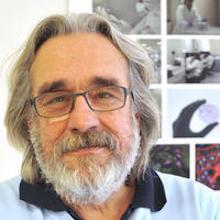
Michele de Luca
Michele de Luca

Center for Regenerative Medicine University of Modena and Reggio Emilia
Professor De Luca, and his principal collaborator Graziella Pellegrini, have been involved in epithelial stem cell biology aimed at clinical application in regenerative medicine for over 20 years. Beside his work on the use of human epidermal stem cell cultures in life-saving treatment of massive full-thickness burns and in repigmentation of stable vitiligo and piebaldism, he established human limbal stem cell culture aimed at corneal regeneration in patients with severe limbal stem cell deficiency. This treatment leads to recovery of vision in patients with poor alternative options for therapy. Michele De Luca is currently coordinating the first (successful) ex-vivo epithelial stem cell-mediated gene therapy clinical trial for the gene therapy of junctional epidermolysis bullosa, a serious genetic skin disease. He is also studying molecular mechanisms regulating self-renewal, proliferative potential and clonal evolution of epithelial stem cells.

Andreas Dinnyes
Andreas Dinnyes

Andras is member of the Stem Cell Committee of the Hungarian Academy of Sciences, the Medical Research Council Committee on Human Reproduction and board member of the Hungarian Biotechnology Association. The Molecular Animal Biotechnology Laboratory of the Szent Istvan University, Hungary was established with his appointment as full professor. Furthermore, he is an invited professor at the Veterinary Faculty of Utrecht University, the Netherlands. He has an MBA-level degree in management and years of international experience in project and team management, and creation of industrial spin-offs via his role as co-founder and director of BioTalentum Ltd (www.biotalentum.eu). Prof. Dinnyes is member and advisor in several professional associations and society, and works as editor for the World Journal of Stem Cells and as Senior Editorial Board for the American Journal of Stem Cells. He was rewarded with the Gábor Dennis Innovation Award, Hungary in 2013.

Hans Clevers
Hans Clevers

Hans Clevers is Principal Investigator at the Hubrecht Institute for Developmental Biology and Stem Cell Research (KNAW) and the Princess Máxima Center for pediatric oncology and also Professor of Molecular Genetics at the UMC Utrecht and Utrecht University, and Oncode Investigator.
Clevers discovered how the Wnt signaling pathway dictates cell fate decisions during animal embryogenesis by controlling gene expression. Looking beyond embryogenesis, he unveiled the role of Wnt signaling in colon cancer and in its physiological counterpart, the self-renewing gut epithelium. Combining these insights, he described the generic stem cell marker gene Lgr5, which has identified multiple novel adult stem cell types. Against prevailing views, these stem cells could be expanded indefinitely as organoids: mini-organs that recapitulate healthy or diseased human tissue in a dish. Organoids are rapidly gaining ground as research tools in a wide range of scientific disciplines including basic developmental and cell biology, infectiology, toxicology and research on hereditary diseases and cancer.

Oliver Brüstle
Oliver Brüstle

Institute of Reconstrutive Neurobiology, University of Bonn Medical Center
Oliver Brüstle is a neuropathologist and a renowned expert in stem cell research. Following research activities at the University of Zurich and the NIH in Bethesda, Maryland, he now serves as Professor of Reconstructive Neurobiology at the University of Bonn Medical Center.

Giulio Cossu
Giulio Cossu

Division of Regenerative Medicine, San Raffaele Scientific Institute of Milan
Dr Cossu is the director of the Division of Regenerative Medicine at the San Raffaele Scientific Institute of Milan. His group has been working for a number of years on the signals and mechanism that regulate the formation of skeletal muscle during embryonic development and, after birth, when the muscle tissue is damaged as a result of an injury or a primary myopathy. He has developed a cell therapy protocol for muscular dystrophy.

Gerald de Haan
Gerald de Haan

Gerald holds the position of Scientific Director of the European Research Institute for the Biology of Ageing. The general scope of studies in his Laboratory is to further improve the understanding of mechanisms that specify normal stem cell functioning. Studies focus on hematopoietic stem cells, largely because superior technical tools and invaluable functional assays exist to study stem cells in this particular tissue. Gerald’s group is interested in the unique genetic and epigenetic program that distinguishes stem cells from non-stem cells.

Daniel Besser
Daniel Besser

Daniel Besser studied biology at the Freie Universität Berlin and obtained his diploma in 1990. He received his PhD in 1996 from the university of Basel with a thesis from the Friedrich-Miescher-Institute, Basel on signal transduction in the gene regulation of urokinase-type plasminogen activator. He worked at Rockefeller University, New York until 2004 in the laboratories of Hidesaburo Hanafusa and James E. Darnell on Stat3 signaling and the function of c-Src; and from 2002 on pluripotency in embryonic stem cells in the lab of Ali H. Brivanlou. He has been leader of a research group at the Max-Delbrück-Center for Molecular Medicine in Berlin until 2011 focusing his research on signal transduction mechanisms in human and murine embryonic stem cells.
Since 2012 he is managing director of the German Stem Cell Network (GSCN). The GSCN is fostering national and international scientific communications, as well as developing outreach programs for schools and the general public in Germany.

Fiona Watt
Fiona Watt

Fiona Watt obtained her DPhil from the University of Oxford, and carried out postdoctoral research at M.I.T, Cambridge, USA. She established her first lab at the Kennedy Institute of Rheumatology in London, and then moved to London Research Institute. From 2006 to 2012 she was Deputy Director of the Cancer Research UK Cambridge Research Institute and Deputy Director of the Wellcome Trust Centre for Stem Cell Research, University of Cambridge. She is currently Director of the Centre for Stem Cells and Regenerative Medicine, Kings College London. My major research interest is in the role of stem cells in adult tissue maintenance.

Anna Rosser
Anna Rosser

Professor Anne Rosser heads the South Wales clinical neurology service for HD as consultant neurologist. She chairs the UK HD research network and the UK arm of the European HD Network, and serves on the Scientific Advisory Committee of the global project Enroll-HD. As a scientist, Professor Rosser co-directs the Brain Repair Group in the Cardiff University School of Biosciences with particular responsibility for neural stem cell studies, and is the clinical director of the Cardiff Foetal Tissue Bank.

Shahragim Tajbakhsh
Shahragim Tajbakhsh


Paolo de Coppi
Paolo de Coppi

Paolo De Coppi is a Consultant Paediatric Surgeon at Great Ormond Street Hospital (GOSH), and Reader and Head of Stem Cells and Regenerative Medicine at the UCL Institute of Child Health in London.
He has been an Honorary Professor at the Katholieke Universiteit Leuven, Belgium, since 2013, an Adjunct Assistant Professor at the Wake Forest Institute for Regenerative Medicine, Wake Forest University in Winston-Salem, North Carolina, since 2009 and an Honorary Assistant Professor in Paediatric Surgery at the University of Padua, Italy, since 2005. He co-ordinates the EU Horizon2020 funded stem cell research consortium - INTENS which aims to aims to make a functional reconstructed bowel for people with Short Bowel Syndrome.

Freddy Radtke
Freddy Radtke


Megan Munsie
Megan Munsie

A/Prof Megan Munsie combines her extensive technical expertise with an interest and understanding of the complex ethical, social and regulatory issues associated with stem cell science. Megan heads the Education, Ethics, Law & Community Awareness Unit at the Australian Government funded Stem Cells Australia initiative. Megan is a member of an international research team that is exploring community expectation in relation to stem cell science, and in particular ‘stem cell tourism’. Over the last decade, Megan has contributed to the development of relevant policy in Australia and co-authored educational resources for the public and health professionals. In addition to having worked for over fifteen years in the Australian stem cell field, Megan also has more than ten years experience as an embryologist in IVF clinics around Australia.
Megan has a Bachelor of Applied Science from QUT, a Masters in Reproductive Sciences and a PhD from Monash University. It was during her PhD in 2000, in which she was the first person to demonstrate that stem cells could be made from ‘cloned' mouse embryos, that Megan saw the real need for scientists to engage with regulators and the public.

Christine Kubiak
Christine Kubiak


Göran Hermerén
Göran Hermerén

Faculty of Medicine, Lund University, Sweden
Göran Hermerén has been Professor of Medical Ethics at the Faculty of Medicine, Lund University, Sweden, since 1991. He has also held the position of Professor of Philosophy, Lund University, since 1975 and he was Professor of Philosophy of Science and Humanities, Umeå University from 1970-75. He is co-ordinator of the EU-funded research project Europriorities and is involved in several other EU-funded projects. He has published and edited books on research ethics as well as papers on ethical problems (mainly medical ethics) in international periodicals. Current research and teaching interests include ethical aspects of gene testing and stem cell research.

Wendy Bickmore
Wendy Bickmore

Contributeurs

Andrea Grignolio
Andrea Grignolio

Unità e Museo di Storia della Medicina, Università degli Studi di Roma «La Sapienza»
Andrea Grignolio, Ph.D. in history of science, focuses his research on the history of biomedical disciplines in twentieth-century western society, with special regard to immunology and molecular biology. In 2004 he studied at the Centre Cavaillès of École Normale Supérieure in Paris, in 2006-2007 was a Post-doctoral Fellow at the Center for Philosophy and History of Science, Boston University, and in 2009 was a visiting scholar at the Office for History of Science and Technology, UC Berkeley. He is the author of papers in international journals and editor of two volumes: Immunology Today. Three Historical Perspectives under Three Theoretical Horizons (Bononia University Press, Bologna, 2010), and Giuseppe Levi, maestro di Nobel, di scienza e di impegno civile (in press). He has been currently teaching History of Medicine at University of Rome «La Sapienza» and working at Elena Cattaneo’s Senate Office. Popularization of science remains one of his favorite side subjects which he cultivates by collaborating with the Third Programme (Radio3) of the national radio network broadcast as well as writing scientific plays (The longing to understand. The history of Barbara McClintock; readapted after Jane Cox; and Le Parole di Rita Levi Montalcini, co-authored with Valeria Patera).

Rajeev Gupta
Rajeev Gupta

University College London Cancer Institute
Rajeev Gupta is Clinical Senior Lecturer in Haematology at the University College London Cancer Institute and a Consultant Haematologist at The Physicians Clinic in London. He gained his PhD at NIMR Mill Hill and was a post-doctoral scientist at the Weatherall Institute of Molecular Medicine in Oxford. His current research focuses on the control of cell fate decisions in haematopoietic stem cells.

Christine Knight
Christine Knight

School of Social and Political Science, University of Edinburgh
Dr Christine Knight is Wellcome Trust Senior Research Fellow in Science, Technology and Innovation Studies, University of Edinburgh. Her current research explores contemporary food history and culture, focusing on nutrition and dietary advice. She has previously completed several projects on the broad relationship between science, medicine, culture and policy. These included What Scientists Read, which investigated the influence of literature on science.

James Hackland
James Hackland

Centre for Stem Cell Biology, University of Sheffield
Jim is a PhD student in the laboratory of Prof Peter Andrews in Sheffield, UK. His work is funded by Yorkshire Cancer Research and focusses on modelling cancer initiating events using human pluripotent stem cells.

Jan Barfoot
Jan Barfoot

Following a PhD in cancer cell biology, Jan Barfoot worked as science communicator at the Institute of Cell Biology, University of Edinburgh, developing and delivering hands-on biotechnology/bioethical workshops and events. Following a secondment as project manager for the RCUK-funded outreach programme 'Researchers in Residence', Jan developed an undergraduate course in Science Communication and edited an educational booklet for teachers 'Stem cells: Science and Ethics'. Jan worked at the MRC Centre for Regenerative Medicine (University of Edinburgh) as public engagement manager for OptiStem (FP7-funded stem cell research consortium) before taking up the role of Communication and Engagement Manager within EuroStemCell. Jan is currently a lecturer on the University of Edinburgh's MSc in Science Communication and Public Engagement.

Kerstin Schmidt
Kerstin Schmidt

Biotechnology Centre (BIOTEC), Technische Universität Dresden
I studied Molecular Medicine in Freiburg and started my PhD thesis a bit more than one year ago (in 2010) at the Biotechnology Centre (BIOTEC) in Dresden as part of the "Dresden International PhD Program". I work on conditional mutagenesis of H3K4 histone methyltransferases in mouse and embryonic stem cells in the group of Konstantinos Anastassiadis and Francis Stewart. Our aim is to understand how epigenetic regulation controls stem cell self-renewal and lineage commitment and to unravel the underlying molecular mechanisms.


